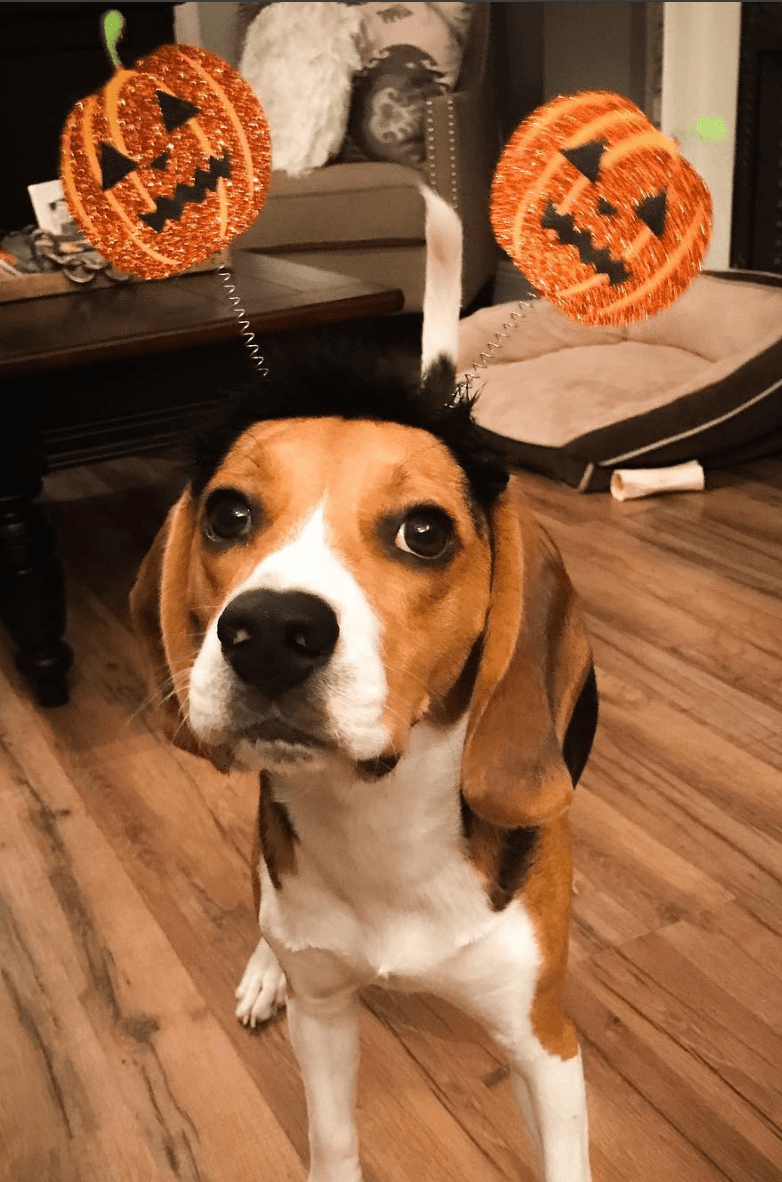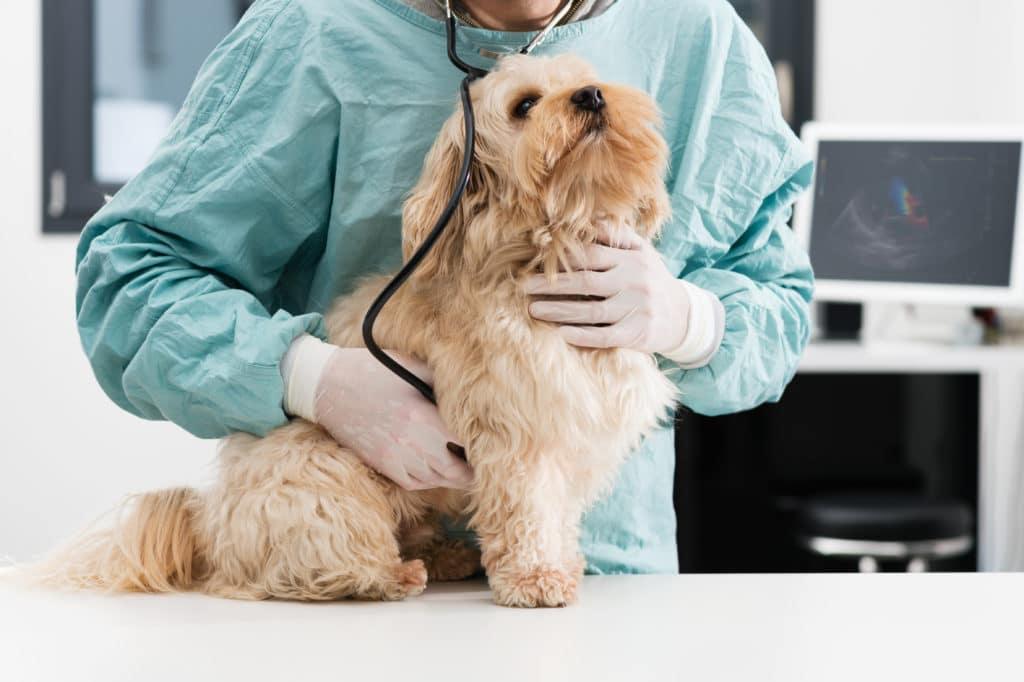Having a strong bond with our furry friends is something that every dog owner desires. However, it can be disheartening and confusing when our dogs display fear towards us. If you've ever wondered, "Why is my dog scared of me?" you're not alone. In this blog post, we will delve into the reasons why dogs may become scared of their owners and how we can help them overcome their fears. By understanding the signs of fear, exploring possible causes, and implementing strategies to build trust and confidence, we can create a safe and loving environment for our beloved pets. So, let's unravel the mysteries behind canine fear and learn how to foster a stronger bond with our furry companions.
Related: Stop Dogs From Barking
Understanding Canine Fear: Why Dogs Become Scared
Fear is a natural emotion that all animals, including dogs, experience. Understanding the reasons behind canine fear is crucial in addressing and resolving the issue of your dog being scared of you. Let's explore some key factors that contribute to dogs becoming fearful:

Lack of Socialization:
Proper socialization during a dog's early developmental stages is vital for them to feel comfortable and confident in various situations. If a dog has not been exposed to different people, animals, and environments during this critical period, they may develop fear or anxiety later in life.
Traumatic Experiences:
Dogs, like humans, can be deeply affected by traumatic events. If your dog has experienced abuse, neglect, or a distressing incident, it can leave lasting emotional scars and manifest as fear towards certain people, objects, or situations.
Genetic Predisposition:
Some dogs may have a genetic predisposition to fear or anxiety. Certain breeds are more prone to being anxious or fearful due to their genetic makeup. However, it's important to note that genetics alone do not determine a dog's behavior, and proper training and socialization can help mitigate these tendencies.
Learned Behavior:
Dogs are highly observant and can learn from their surroundings and experiences. If they witness their owners displaying fear or aggression, they may mirror these behaviors and become scared themselves. Additionally, if a dog has been punished or scolded harshly in the past, they may associate their owner with negative experiences and develop fear as a result.

Sensory Sensitivities:
Dogs have heightened senses, and certain stimuli, such as loud noises or sudden movements, can trigger fear responses. If your dog is particularly sensitive to specific sounds, sights, or smells, they may exhibit fear or anxiety when exposed to these stimuli.
Understanding these factors that contribute to canine fear is the first step in helping your dog overcome their fears. By identifying the root cause of their fear, you can tailor your approach and implement the appropriate strategies to provide them with the support and reassurance they need.
Related: Can Dogs Eat Mandarins?
Common Signs Your Dog is Scared
Recognizing the signs of fear in your dog is crucial for understanding their emotions and addressing their fears effectively. Dogs may communicate their fear through various behavioral and physical cues. Here are some common signs that indicate your dog is scared:
Body Language Indicating Fear
- Tail tucking: A scared dog may tuck their tail tightly between their hind legs.
- Cowering or hunching: They may lower their body and try to make themselves appear smaller.
- Trembling or shaking: Fear can cause dogs to shake or tremble involuntarily.
- Ears pinned back: When a dog's ears are flattened against their head, it signals fear or anxiety.
- Dilated pupils: Fear can cause the pupils to dilate, making the eyes appear larger.
- Lip licking or yawning: Dogs may lick their lips or yawn excessively when they are anxious or scared.

Behavioral Changes
- Avoidance or hiding: Scared dogs may try to avoid certain people, places, or situations and seek hiding spots to feel safe.
- Excessive barking or growling: Some dogs become vocal when they are scared, using barking or growling as a defensive mechanism.
- Aggression: In some cases, fear can trigger aggressive behavior as a means of self-defense.
- Reduced appetite or excessive drooling: Fear can affect a dog's appetite, leading to a decrease in food intake or excessive drooling.
- Restlessness or pacing: Scared dogs may exhibit restlessness, constantly moving around or pacing back and forth.
Physical Symptoms of Fear
- Increased heart rate: Fear can cause a dog's heart rate to rise, leading to a faster pulse.
- Panting: Dogs may pant excessively when they are scared or anxious.
- Excessive shedding: Fear can trigger excessive shedding in some dogs.
- Loss of bladder or bowel control: In extreme cases, dogs may urinate or defecate involuntarily due to fear.
By being attentive to these signs, you can better assess your dog's emotional state and take appropriate measures to help alleviate their fear and anxiety. Remember, each dog may exhibit different signs of fear, so it's essential to observe and understand your specific dog's behavior patterns.
Related: Can Dogs Eat Strawberries?
Possible Reasons Your Dog is Scared of You
If your dog is scared of you, it can be distressing and leave you wondering what could have caused this fear. Several potential reasons could contribute to your dog's fear towards you. Let's explore some of the possible explanations:
Past Trauma or Abuse
If your dog has experienced trauma or abuse in the past, it can lead to fear and mistrust towards humans, including their owners. Dogs with a history of mistreatment may associate certain behaviors, gestures, or even specific people with their traumatic experiences, resulting in fear responses.

Unexpected Loud Noises or Movements
Sudden loud noises or quick movements can startle dogs and trigger fear. For example, if you accidentally dropped a heavy object or made a sudden movement that scared your dog, they may become fearful of you in anticipation of similar events.
Negative Association with You
Dogs are highly perceptive and can associate negative experiences with specific individuals. If your dog has had negative encounters or unpleasant interactions with you, such as scolding, punishment, or forced handling, they may develop fear towards you as a result.
Health Issues Causing Fear or Anxiety
It's essential to consider the possibility that your dog's fear may be related to an underlying health issue. Pain, discomfort, or medical conditions such as anxiety disorders can manifest as fear or apprehension towards their owners. If you suspect this to be the case, consulting with a veterinarian is crucial to address any potential health concerns.
Understanding the potential reasons behind your dog's fear of you can guide you in addressing the issue effectively. It's important to approach the situation with patience, empathy, and a commitment to creating a safe and trusting environment for your dog. By identifying the root cause and taking appropriate steps, you can help your dog overcome their fear and rebuild a positive relationship with you.

Related: Can Dogs Eat Eggplant?
How to Help Your Dog Overcome Its Fear
Helping your dog overcome their fear is a process that requires patience, understanding, and a compassionate approach. Here are some effective strategies to help your dog overcome their fear and build trust and confidence:
Creating a Safe and Comfortable Environment
- Provide a safe space: Create a designated area where your dog can retreat to when they feel scared or anxious. This could be a cozy corner with their bed, toys, and familiar scents.
- Minimize triggers: Identify and minimize any triggers that may cause fear in your dog. For example, if loud noises are a source of fear, create a quiet and calm environment during events like fireworks or thunderstorms.
Positive Reinforcement Techniques
- Counter-conditioning: Gradually expose your dog to the source of their fear in a controlled and positive way. Pair the feared stimulus with something your dog loves, such as treats, toys, or praise, to create a positive association.
- Desensitization: Gradually expose your dog to the fear-inducing stimulus in small and manageable increments. Start at a distance or with a less intense version of the stimulus, and gradually increase exposure as your dog becomes more comfortable.

Related: Can Dogs Eat Sesame Seeds?
Professional Help: When to Consult a Veterinarian or Dog Behaviorist
- Consult a veterinarian: If your dog's fear is severe, persistent, or accompanied by other concerning symptoms, it's important to seek guidance from a veterinarian. They can rule out any underlying medical conditions and provide appropriate treatment options.
- Work with a dog behaviorist: A professional dog behaviorist can assess your dog's fear and develop a customized behavior modification plan. They can provide guidance, training techniques, and support throughout the process.
Training Tips to Build Trust and Confidence
- Reward-based training: Use positive reinforcement techniques to reward your dog's calm and confident behavior. Reward them for approaching new situations or facing their fears gradually.
- Build trust through bonding activities: Engage in activities that strengthen your bond with your dog, such as interactive play sessions, training exercises, and gentle grooming. This helps build trust and confidence over time.
Remember, overcoming fear takes time and consistency. Be patient with your dog and celebrate even small victories along the way. With your support, understanding, and the right techniques, you can help your dog overcome their fear and develop a more confident and happy disposition.

Related: Can Dogs Eat Grit?
Preventing Future Fear: How to Avoid Scaring Your Dog
Preventing fear and anxiety in your dog is crucial for maintaining a positive and nurturing relationship. Being proactive and taking certain steps can help you create a secure environment for your pet. Consistency is key in your behavior and training methods. Dogs thrive on clear boundaries and expectations, so ensure you maintain a consistent approach.
Use positive reinforcement, like treats and praise, to build trust and confidence. Understand your dog's body language to recognize signs of discomfort or fear and adjust your actions accordingly. Respect their personal space and allow them to initiate contact.
Create positive associations by engaging in enjoyable activities together and using treats during interactions. Regular veterinary check-ups and a healthy lifestyle are essential to address potential health issues and maintain overall well-being. Lastly, These preventive measures can help you establish a strong and trusting bond with your dog, free from fear and anxiety.
![Why is My Dog Scared of Me? [FACTS!!]](http://dope.dog/cdn/shop/articles/karsten-winegeart--_gMskl-uoc-unsplash-min.jpg?v=1695383102&width=2000)

















